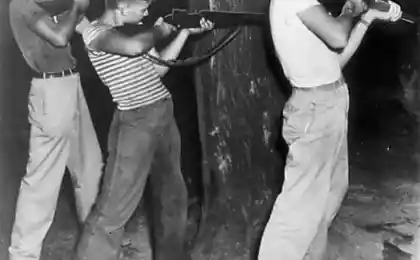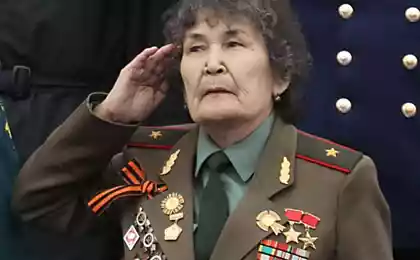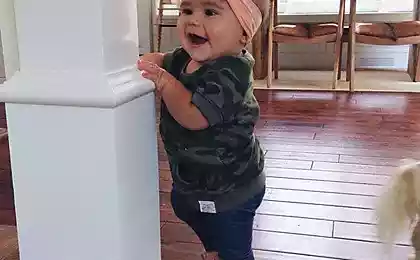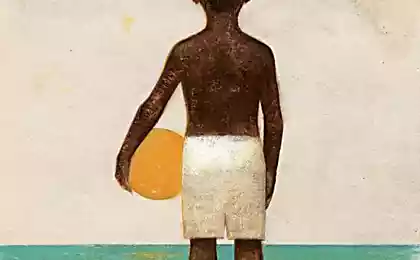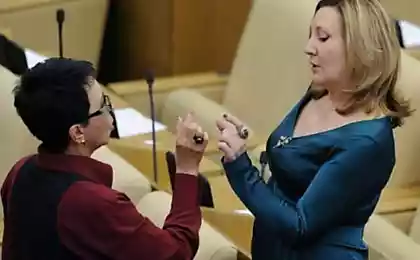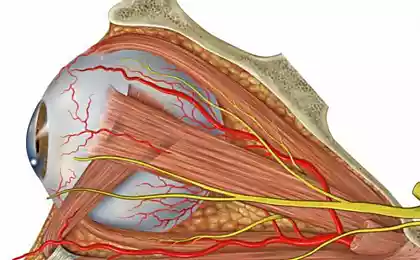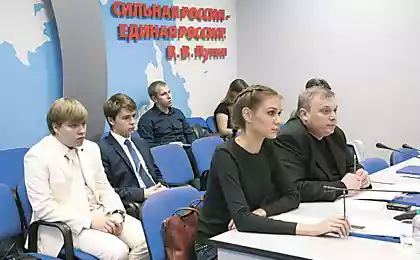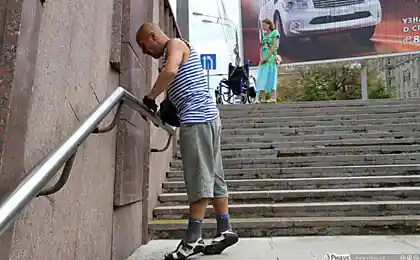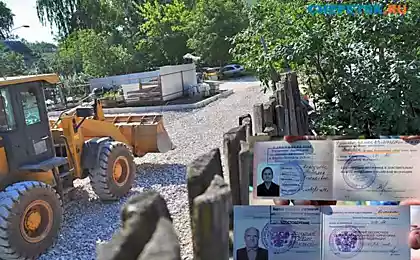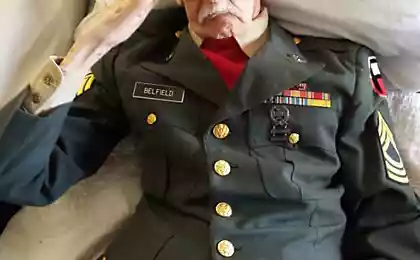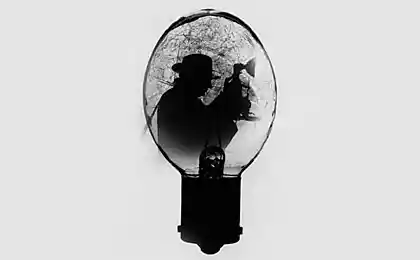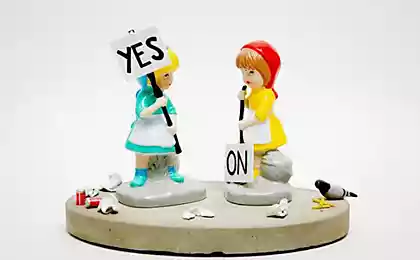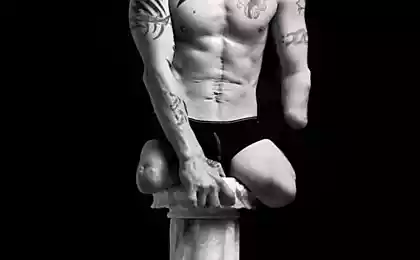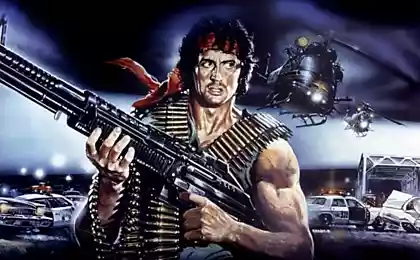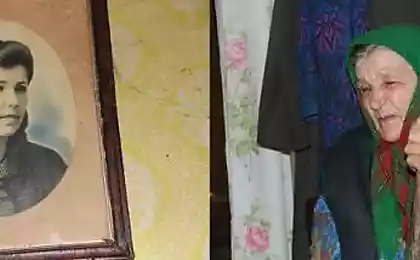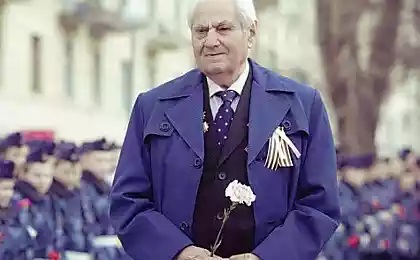638
Memories of veterans
Victory Day is dedicated!

Pauline Sviatohorsk
Born in 1925, the Soviet Union
When the war started, I wanted to help in the fight against the Nazis, but I did not want to take it, because I was only sixteen. Railway troops were in Kazan, I came back and said, "Take me, I'm a nurse." But they also thought that I was too young. I continued to beg until he took. Germans mined the railways, so that was a lot of work. I assisted the surgeon. My very first operation was amputation of the leg. The doctor gave it to me, I wanted to come back and say, "attach it in place." He said that I should bury her. I went with my leg out and began to cry. Soldiers who saw me, took his leg and buried.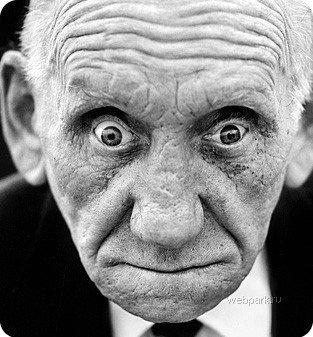
Frederick Lennart Bentley
Born in 1924, UK
I was blinded by a German grenade and threw my comrades. This is what happens to the wounded did not help, you should help themselves. And I myself got to his. If the Germans found me, of course, would have killed. Cripples not offer shelter, they were buried. I myself have done this. Not to fight the people can not understand it. Do you live close to death twenty-four hours a day. Anyway, the war ended for me. I got a Leylandskuyu factory engineer and worked there for 33 years. Machines explored by touch. Married, fathered four children. After the war, I had a wonderful life.
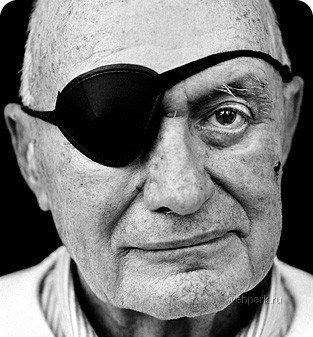
Buck Dawson
Born in 1920, the US
After the war, everything seemed suddenly relaxed. We met with the Russian on the Elbe. They have drunk vodka before our arrival. These Russian guys are cool, but they are not so different from us. During the celebrations of the Russian fired his weapon, just like in the Wild West. We also wanted to show what we are. One guy was going to show Russian how to skydive. Jumped from the third floor of Staff and broke his ankle. A Russian truck rolled down the hill, turned, someone is seriously injured, but Russian is not very worried. Life for them was worth nothing, or maybe they are just too much to drink.
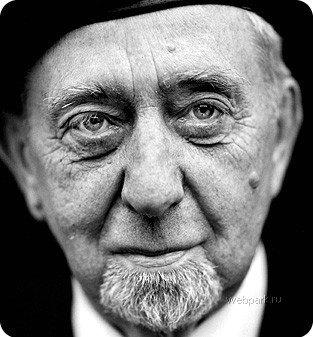
Krzysztof Gryf-Lovchovsky
Born in 1923, Poland
The Germans were the worst. They killed us like cattle. Us, our children and wives. Personally, I killed seventeen Germans. First he tried to strangle me. But I jabbed his finger in the eye and drove his knee in the balls. When he released me, I shot him. My colleagues joked that the German looks better than I do - with traces of his fingers on his neck. He had a medal, which is now hanging in my closet. There is another, but this I took off already dead German. Local children when they learn about these medals come on tour in my closet.
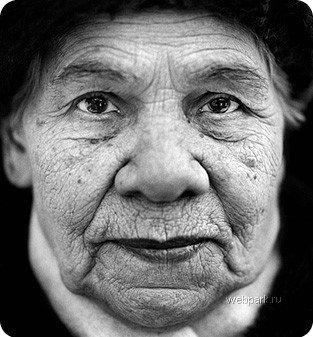
Praskovja Abalikhina
Born in 1922, the Soviet Union
People in blockade starved to death. One day I saw a woman on the street became wiggle, village and died. I was an army telegraphist and received 300 grams of bread, and not 125 as civil. Every day I put some food and at the end of the week belongs cvoey family, in the city center. I had to walk 15 kilometers - trams something no longer walk. But my daughter is still died of hunger. Her husband, my brother, Nicholas, had already been killed. My mother took them to their children. When I came to, they were lying on the bed - bones covered with skin. I was twice wounded, the prosthesis instead of legs. After the war, I never got married. I had to take care of nephew and mother of lame, I was no use to anybody.
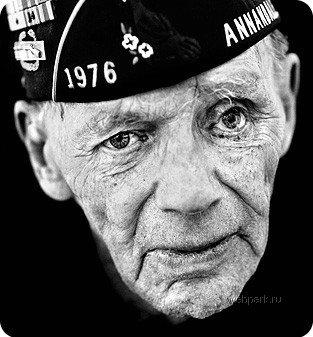
Edward Hamilton
Born in 1917, the US
For me - cowardice is worse than death. I was wounded three times. The last time - by shrapnel in the face. In my battalion, there were soldiers who are specifically maimed to go home. One shot off his finger on his leg. But I made sure samostrelschikov tried and sentenced to hard labor. One officer somehow got sick to serve. He said that he himself was brave, but it is difficult to put up with the death of his subordinates. I demoted him to the ranks and sent to the front, so that he could show his mettle, not caring about the responsibility for others.
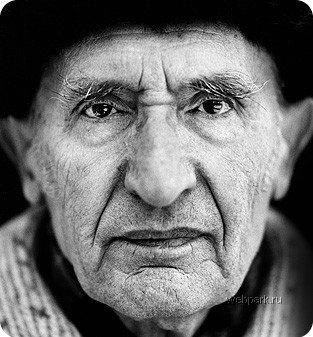
Sergei Rozanov
Born in 1925, the Soviet Union
I was very pleased with the new shoes. Throughout the war, to Hungary, I took in the old, and they are completely worn out. Comrades, I bought new in the tannery near Lake Balaton. When I try on them to the house where we were sitting, the bomb fell. Three were killed and a piece of shrapnel struck my new shoes. I was terribly upset. Due to an injury in the leg, I was sent to the hospital. Given a hospital gown, and I do not see his shoes. I clearly remember what they looked like: beautiful, shiny, black leather. A work of art.
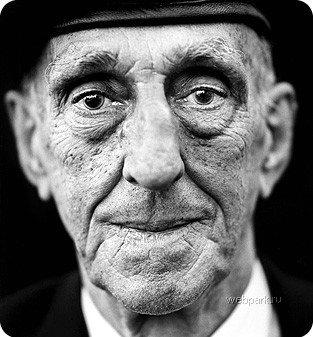
Fred Blakelock
Born in 1919, UK
I still do not like their peers-Germans. I believe that they are personally responsible for the war. Most of them supported Hitler until everything went well. Only when we arrived, and there was a chance that the war would be lost, they changed their mind. Voltaire said that you have to fight for their freedom. We did it, and then the Germans could, if they were against Hitler. I spoke several times with the German veterans. They just sent to fight, but I still do not want to deal with them. Because of them, I lost many friends, and six years of life. I can not forgive them.
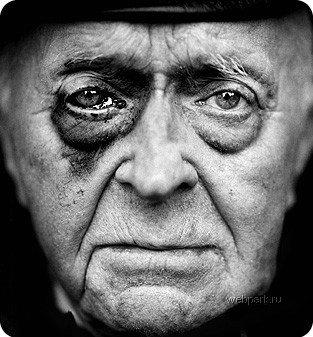
Lane Jonker
Born in 1916, the Netherlands
October 25, 1943 we flew to France to bomb the airport. The Germans were firing at us from the ground. The aircraft was hit, I was seriously wounded. The right arm was hanging by a piece of skin. Glass turret, in which I sat, was destroyed, but I could not get out. So we flew back to England. For nine months I was put in the hospital. Friends do not let me visit: commanders feared that when he saw me, they do not want to fly more. Fortunately, hand sewn in place. At the hospital, I received a letter from Queen Wilhelmina and the Cross "Distinguished Flying." I was somewhat disappointed because such awards are usually handed over personally Prince Bernhard or queen. But King George and his wife came to visit me. King said my courage, and the queen then sent me a set of cards.
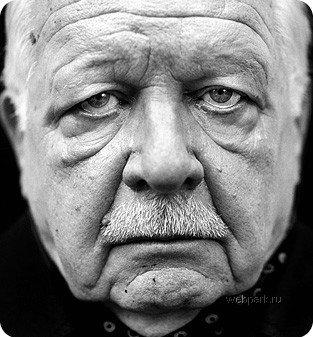
Gerhard Hiller
Born in 1921, Germany
In the spring of 1944 I was in the bunker on the Normandy coast. At one duty we were on the clock, and the rest of the time went to the beach through a minefield, swimming and sunbathing. June 6, I was on the clock when suddenly began landing. So many ships that can not be counted. We were surprised because we expected the Allies landed at Calais rather than Normandy. Some began to pray, some dip fear. I was taken prisoner and sent to Texas. In America, picked cotton with blacks. After the war, we were sent to England, to the "restoration work", they said. This lasted until 1948, in violation of international law, according to which all prisoners should be released at the end of hostilities. I left home at age 19, and went back to 27. He lost the best years of his life.
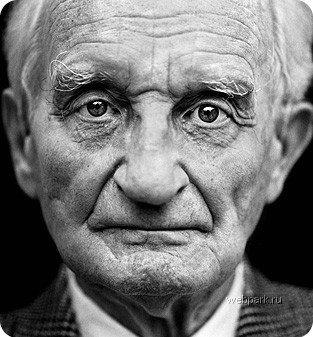
Johannes Neubert
Born in 1915, Germany
When we retreated from Moscow, we met five or six wounded Germans. In the minus forty they lay on the curb and waited for them somebody will pick up, but no one helped them. Technology was not, and on the hands we would not have taken out. Perhaps they froze to death. I commanded a battalion, but after the defeat at Moscow no longer believed in victory. I think we should give up, but did not dare say it out loud. Nobody dared. The only protest that I saw - dinner in the officers' mess, and no one raised a toast to the health of our Fuehrer and Commander. The current generation does not understand that the opposition to the Nazis was not possible. You just disappeared.
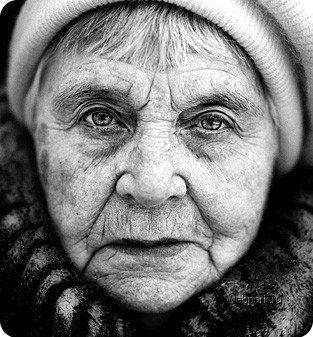
Zinaida Mamlenova
Born in 1924, the Soviet Union
I served in the railway troops. May 9, 1945, I was the first in Czechoslovakia, in a small town, about three kilometers from the front line, engaged in paperwork at the headquarters. I was asleep when suddenly he heard machine-gun fire. I thought it was the Germans again. On the stairs there was a knock steps. I thought that the building was captured, and very scared. I almost jumped out of the window. But then the door opened, and showed my comrades. They hugged and kissed me, Congratulations on your victory. The war is over.
Source

Pauline Sviatohorsk
Born in 1925, the Soviet Union
When the war started, I wanted to help in the fight against the Nazis, but I did not want to take it, because I was only sixteen. Railway troops were in Kazan, I came back and said, "Take me, I'm a nurse." But they also thought that I was too young. I continued to beg until he took. Germans mined the railways, so that was a lot of work. I assisted the surgeon. My very first operation was amputation of the leg. The doctor gave it to me, I wanted to come back and say, "attach it in place." He said that I should bury her. I went with my leg out and began to cry. Soldiers who saw me, took his leg and buried.

Frederick Lennart Bentley
Born in 1924, UK
I was blinded by a German grenade and threw my comrades. This is what happens to the wounded did not help, you should help themselves. And I myself got to his. If the Germans found me, of course, would have killed. Cripples not offer shelter, they were buried. I myself have done this. Not to fight the people can not understand it. Do you live close to death twenty-four hours a day. Anyway, the war ended for me. I got a Leylandskuyu factory engineer and worked there for 33 years. Machines explored by touch. Married, fathered four children. After the war, I had a wonderful life.

Buck Dawson
Born in 1920, the US
After the war, everything seemed suddenly relaxed. We met with the Russian on the Elbe. They have drunk vodka before our arrival. These Russian guys are cool, but they are not so different from us. During the celebrations of the Russian fired his weapon, just like in the Wild West. We also wanted to show what we are. One guy was going to show Russian how to skydive. Jumped from the third floor of Staff and broke his ankle. A Russian truck rolled down the hill, turned, someone is seriously injured, but Russian is not very worried. Life for them was worth nothing, or maybe they are just too much to drink.

Krzysztof Gryf-Lovchovsky
Born in 1923, Poland
The Germans were the worst. They killed us like cattle. Us, our children and wives. Personally, I killed seventeen Germans. First he tried to strangle me. But I jabbed his finger in the eye and drove his knee in the balls. When he released me, I shot him. My colleagues joked that the German looks better than I do - with traces of his fingers on his neck. He had a medal, which is now hanging in my closet. There is another, but this I took off already dead German. Local children when they learn about these medals come on tour in my closet.

Praskovja Abalikhina
Born in 1922, the Soviet Union
People in blockade starved to death. One day I saw a woman on the street became wiggle, village and died. I was an army telegraphist and received 300 grams of bread, and not 125 as civil. Every day I put some food and at the end of the week belongs cvoey family, in the city center. I had to walk 15 kilometers - trams something no longer walk. But my daughter is still died of hunger. Her husband, my brother, Nicholas, had already been killed. My mother took them to their children. When I came to, they were lying on the bed - bones covered with skin. I was twice wounded, the prosthesis instead of legs. After the war, I never got married. I had to take care of nephew and mother of lame, I was no use to anybody.

Edward Hamilton
Born in 1917, the US
For me - cowardice is worse than death. I was wounded three times. The last time - by shrapnel in the face. In my battalion, there were soldiers who are specifically maimed to go home. One shot off his finger on his leg. But I made sure samostrelschikov tried and sentenced to hard labor. One officer somehow got sick to serve. He said that he himself was brave, but it is difficult to put up with the death of his subordinates. I demoted him to the ranks and sent to the front, so that he could show his mettle, not caring about the responsibility for others.

Sergei Rozanov
Born in 1925, the Soviet Union
I was very pleased with the new shoes. Throughout the war, to Hungary, I took in the old, and they are completely worn out. Comrades, I bought new in the tannery near Lake Balaton. When I try on them to the house where we were sitting, the bomb fell. Three were killed and a piece of shrapnel struck my new shoes. I was terribly upset. Due to an injury in the leg, I was sent to the hospital. Given a hospital gown, and I do not see his shoes. I clearly remember what they looked like: beautiful, shiny, black leather. A work of art.

Fred Blakelock
Born in 1919, UK
I still do not like their peers-Germans. I believe that they are personally responsible for the war. Most of them supported Hitler until everything went well. Only when we arrived, and there was a chance that the war would be lost, they changed their mind. Voltaire said that you have to fight for their freedom. We did it, and then the Germans could, if they were against Hitler. I spoke several times with the German veterans. They just sent to fight, but I still do not want to deal with them. Because of them, I lost many friends, and six years of life. I can not forgive them.

Lane Jonker
Born in 1916, the Netherlands
October 25, 1943 we flew to France to bomb the airport. The Germans were firing at us from the ground. The aircraft was hit, I was seriously wounded. The right arm was hanging by a piece of skin. Glass turret, in which I sat, was destroyed, but I could not get out. So we flew back to England. For nine months I was put in the hospital. Friends do not let me visit: commanders feared that when he saw me, they do not want to fly more. Fortunately, hand sewn in place. At the hospital, I received a letter from Queen Wilhelmina and the Cross "Distinguished Flying." I was somewhat disappointed because such awards are usually handed over personally Prince Bernhard or queen. But King George and his wife came to visit me. King said my courage, and the queen then sent me a set of cards.

Gerhard Hiller
Born in 1921, Germany
In the spring of 1944 I was in the bunker on the Normandy coast. At one duty we were on the clock, and the rest of the time went to the beach through a minefield, swimming and sunbathing. June 6, I was on the clock when suddenly began landing. So many ships that can not be counted. We were surprised because we expected the Allies landed at Calais rather than Normandy. Some began to pray, some dip fear. I was taken prisoner and sent to Texas. In America, picked cotton with blacks. After the war, we were sent to England, to the "restoration work", they said. This lasted until 1948, in violation of international law, according to which all prisoners should be released at the end of hostilities. I left home at age 19, and went back to 27. He lost the best years of his life.

Johannes Neubert
Born in 1915, Germany
When we retreated from Moscow, we met five or six wounded Germans. In the minus forty they lay on the curb and waited for them somebody will pick up, but no one helped them. Technology was not, and on the hands we would not have taken out. Perhaps they froze to death. I commanded a battalion, but after the defeat at Moscow no longer believed in victory. I think we should give up, but did not dare say it out loud. Nobody dared. The only protest that I saw - dinner in the officers' mess, and no one raised a toast to the health of our Fuehrer and Commander. The current generation does not understand that the opposition to the Nazis was not possible. You just disappeared.

Zinaida Mamlenova
Born in 1924, the Soviet Union
I served in the railway troops. May 9, 1945, I was the first in Czechoslovakia, in a small town, about three kilometers from the front line, engaged in paperwork at the headquarters. I was asleep when suddenly he heard machine-gun fire. I thought it was the Germans again. On the stairs there was a knock steps. I thought that the building was captured, and very scared. I almost jumped out of the window. But then the door opened, and showed my comrades. They hugged and kissed me, Congratulations on your victory. The war is over.
Source
